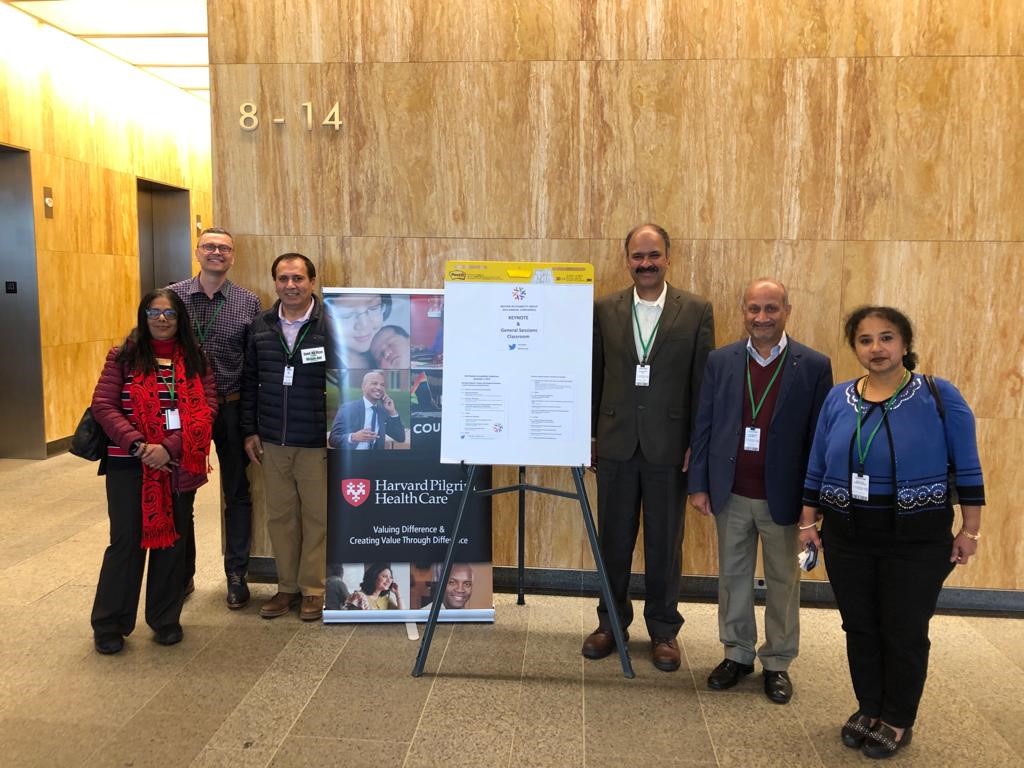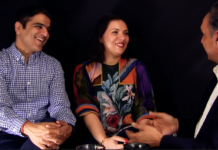BOSTON–Vision-Aid hosted a panel of experts on Accessibility Testing at the Boston Accessibility Conference, an annual event that attract leaders from many fields who are interested in supporting accessibility, universal design and making the digital world a more universal place for persons of all abilities.
This year’s conference was held on last Saturday November 2nd at the Fidelity Offices in downtown Boston. Vision-Aid co-sponsored the conference and hosted a keynote panel on “Accessible Accessibility Testing” and an information session on “Using technology to create wearable navigational devices for the blind”.
Accessible Accessibility Testing
The keynote panel brought together leading experts in the field of Accessiblity testing to explore the advantages of having people with disabilities do accessibility testing. The panel discussed some of the challenges of having people with disabilities conduct WCAG 2.x compliance testing as well as how these challenges be overcome. The panel also explored if accessibility-testing tools are themselves accessible and discussed how companies which want to conduct usability testing with people with disabilities could get started. They also discussed how people with disabilities who want to get paid to do accessibility and/or usability testing, could get started.

The panel was moderated by Glenda Sims, Team lead of Accessibility Testing at Deque Systems Inc. of Austin, which is considered the global leader in this space. Other panelists included Becky Gibson from Knowbility, Cheryl Cumings, Founder of Our Space Our Place, Jeanne Spellman, The Paciello Group, Rich Caloggero, MIT Assistive Technology Laboratory and WGBH National Center for Accessible Media and Ramakrishna Raju, Founder & Executive Director, Vision-Aid. The Vision-Aid team at the conference also included President Syed Ali Rizvi, Co-Founder & VP Revathy Ramakrishna, Directors Paramesh Garimella, Nirmala Garimella, Ujwala Phene, Ravi Rastogi, Loubaina Buxamusa and volunteers Sonal Patel and others.
Vision-Aid’s new program in Accessibility Testing
At this time, Vision-Aid is offering a path-breaking course on Digital Accessibility Testing which was launched in India, on 17th August 2019. The main objective of the course is to train visually impaired students to be ready for employment, as skilled accessibility testers, upon successful completion of the course. The students will learn valuable skills in accessibility testing and go on to help to make our digital world a more accessible and inclusive place for all. Following the curriculum offered by Deque University, the leader in this field, this course is being delivered over a period of 18 weeks, having a virtual class for 2 hours every Saturday. On successful completion, the students will be fully prepared to earn Deque University certificates along with hands on experience on several real life projects.
This is the first time Vision-Aid is offering this course, and the initial application demand was very strong We received 51 applications from all over India, and have screened and selected 13 students, all visually impaired from various cities across India: ranging from Surat-Gujarat, to Delhi, Bangalore and Hyderabad. The teaching team includes Mr. Ashwin Kumar, Mr. Bhargav Vaghasiya, Justin Philips, Pinky Gupta and others, under the leadership of Ms. Jayanthi Lakshmipuram.

Presentation about Vision-Aid
In the following session, Vision-Aid Founder and Executive Director, Ram Raju presented an overview of the work being done by Vision-Aid and explained how the Vision-Aid model and programs are bringing direct impact in the lives of the visually impaired through its resource centers in India.
Presentation by Sid Anantha
The next session featured speaker Sidharth Anantha, a senior from Lexington High School who showcased his innovative device “Seeing for the Blind” which includes the applications of technology to improve mobility and navigation for blind users. Mr. Anantha explains how machine learning and echolocation can be used to give the blind a greater sense of spatial awareness, and walked the audience through his own journey and motivations for innovation, which began four years ago when he saw a blind woman trying to navigate through a crowded train in Mumbai, India. The audience appreciated Sid’s presentation and a lively discussion followed.
Overall, the conference was a huge success and helped to shine a light on the important subject of improving accessibility and making the world a more inclusive place for all.














